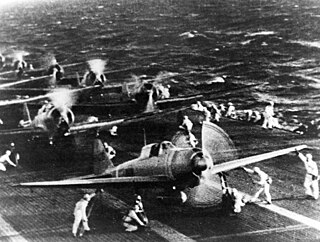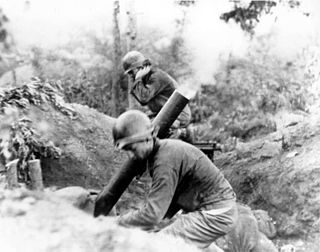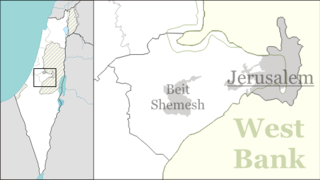
Al-Qaeda, officially known as Qaedat al-Jihad, is a multinational militant Sunni Islamic extremist network composed of Salafist jihadists. It was founded in 1988 by Osama bin Laden, Abdullah Azzam, and several other Arab volunteers during the Soviet–Afghan War.

World War II or the Second World War, often abbreviated as WWII or WW2, was a global war that lasted from 1939 to 1945. It involved the vast majority of the world's countries—including all of the great powers—forming two opposing military alliances: the Allies and the Axis powers. In a total war directly involving more than 100 million personnel from more than 30 countries, the major participants threw their entire economic, industrial, and scientific capabilities behind the war effort, blurring the distinction between civilian and military resources. Aircraft played a major role in the conflict, enabling the strategic bombing of population centres and the only two uses of nuclear weapons in war. World War II was by far the deadliest conflict in human history; it resulted in 70 to 85 million fatalities, a majority being civilians. Tens of millions of people died due to genocides, starvation, massacres, and disease. In the wake of the Axis defeat, Germany and Japan were occupied, and war crimes tribunals were conducted against German and Japanese leaders.

The Suez Crisis, or the Second Arab–Israeli war, also called the Tripartite Aggression in the Arab world and the Sinai War in Israel, was an invasion of Egypt in late 1956 by Israel, followed by the United Kingdom and France. The aims were to regain control of the Suez Canal for the Western powers and to remove Egyptian president Gamal Abdel Nasser, who had just nationalised the foreign-owned Suez Canal Company, which administered the canal. After the fighting had started, political pressure from the United States, the Soviet Union and the United Nations led to a withdrawal by the three invaders. The episode humiliated the United Kingdom and France and strengthened Nasser.

The Gulf War was an armed campaign waged by a United States-led coalition of 35 countries against Iraq in response to the Iraqi invasion and annexation of Kuwait.

The 2003 invasion of Iraq was the first stage of the Iraq War. The invasion phase began on 19 March 2003 (air) and 20 March 2003 (ground) and lasted just over one month, including 26 days of major combat operations, in which a combined force of troops from the United States, the United Kingdom, Australia and Poland invaded Iraq. 22 days after the first day of the invasion, the capital city of Baghdad was captured by Coalition forces on 9 April 2003 after the six day long Battle of Baghdad. This early stage of the war formally ended on 1 May 2003 when U.S. President George W. Bush declared the "end of major combat operations" in his Mission Accomplished speech, after which the Coalition Provisional Authority (CPA) was established as the first of several successive transitional governments leading up to the first Iraqi parliamentary election in January 2005. U.S. military forces later remained in Iraq until the withdrawal in 2011.

The Pacific War, sometimes called the Asia–Pacific War, was the theater of World War II that was fought in Asia, the Pacific Ocean, the Indian Ocean, and Oceania. It was geographically the largest theater of the war, including the vast Pacific Ocean theater, the South West Pacific theater, the Second Sino-Japanese War, and the Soviet–Japanese War.

An insurgency began in Iraq after the 2003 US-led invasion, and lasted throughout the ensuing Iraq War which lasted from 2003 until 2011. The first phase of the insurgency began shortly after the 2003 invasion and prior to the establishment of the new Iraqi government. From around 2004 to May 2007, the insurgency primarily targeted the Multi-National Force – Iraq. Latterly Iraqi security forces were also targeted, as they were seen by Iraqi insurgents as collaborators with the coalition and the government installed under its occupation.
This timeline of United States government military operations, based in part on reports by the Congressional Research Service, shows the years and places in which U.S. military units participated in armed conflicts or occupation of foreign territories. Items in bold are wars most often considered to be major conflicts by historians and the general public.
Terrorism in Saudi Arabia has mainly been attributed to Islamic extremists. Their targets included foreign civilians—Westerners affiliated with its oil-based economy—as well as Saudi Arabian civilians and security forces. Anti-Western attacks have occurred in Saudi Arabia dating back to 1995. Saudi Arabia itself has been accused of funding terrorism in other countries, including Syria.

The Battle of the Pusan Perimeter(Korean: 부산 교두보 전투) was a large-scale battle between United Nations Command (UN) and North Korean forces lasting from August 4 to September 18, 1950. It was one of the first major engagements of the Korean War. An army of 140,000 UN troops, having been pushed to the brink of defeat, were rallied to make a final stand against the invading Korean People's Army (KPA), 98,000 men strong.

The Taliban insurgency was an insurgency that began after the group's fall from power during the 2001 War in Afghanistan. The Taliban forces fought against the Afghan government, led by President Hamid Karzai, and later by President Ashraf Ghani, and against a US-led coalition of forces that has included all members of NATO; the 2021 Taliban offensive resulted in the collapse of the government of Ashraf Ghani.

The Iraq War was a protracted armed conflict in Iraq from 2003 to 2011 that began with the invasion of Iraq by the United States–led coalition which overthrew the Iraqi government of Saddam Hussein. The conflict continued for much of the next decade as an insurgency emerged to oppose the coalition forces and the post-invasion Iraqi government. US troops were officially withdrawn in 2011. The United States became re-involved in 2014 at the head of a new coalition, and the insurgency and many dimensions of the armed conflict continue today. The invasion occurred as part of the George W. Bush administration's War on Terror following the September 11 attacks.

The 2003 Nasiriyah bombing was a suicide attack on the Italian Carabinieri MSU headquarters in Nasiriyah, Iraq, south of Baghdad on 12 November 2003. The attack resulted in the deaths of 18 Italian servicemembers, mostly members of the MSU Carabinieri, an Italian civilian, and 9 Iraqi civilians and was the worst Italian military disaster since the Second World War. The attack, labeled a "terrorist act" by Italian president Carlo Azeglio Ciampi, was among a string of many attacks on non-American military international targets in Iraq that occurred shortly after the end of major combat operations, including the Jordanian and Turkish embassies, International Red Cross, and UN facilities.
The Ramadan Offensive was a series of insurgent attacks against Coalition and Iraqi military targets from the end of October and during much of November 2003.

The Global War on Terrorism (GWOT), popularly known as the "war on terror", is the term that refers to an ongoing international military campaign launched by the United States government following the September 11 attacks. The targets of the campaign are primarily Islamist groups located throughout the world, with the most prominent groups being al-Qaeda, as well as the Islamic State and their various franchise groups.

The Battle of Najaf was a major battle in the 2003 invasion of Iraq. The first stage of the battle was fought when the US 3rd Infantry Division fought to surround the town. The second stage was fought when soldiers from the U.S. 101st Airborne Division fought to clear and secure the city.

The War in Afghanistan was a conflict that took place from 2001 to 2021 in the South-Central Asian country of Afghanistan. It began when the United States and its allies invaded Afghanistan and toppled the Taliban-ruled Islamic Emirate of Afghanistan. The war ended with the Taliban regaining power after a nearly 20-year-long insurgency against allied NATO and Afghan Armed Forces. It was the longest war in United States history, surpassing the Vietnam War (1955–1975) by approximately five months.

The Battle of Taejon was an early battle of the Korean War, between U.S. and North Korean forces. Forces of the United States Army attempted to defend the headquarters of the 24th Infantry Division. The 24th Infantry Division was overwhelmed by numerically superior forces of the Korean People's Army (KPA) at the major city and transportation hub of Taejon. The 24th Infantry Division's regiments were already exhausted from the previous two weeks of delaying actions to stem the advance of the KPA.

The Battle of Chochiwon was an early engagement between United States and North Korean forces during the Korean War, taking place in the villages of Chonui and Chochiwon in western South Korea on July 10–12, 1950. After three days of intense fighting, the battle ended in a North Korean victory.

The Café Hillel bombing was a Palestinian suicide bombing carried out on September 9, 2003 in a coffee shop in the German Colony neighborhood in Jerusalem. Seven people were killed in the attack and over 50 were injured.
















